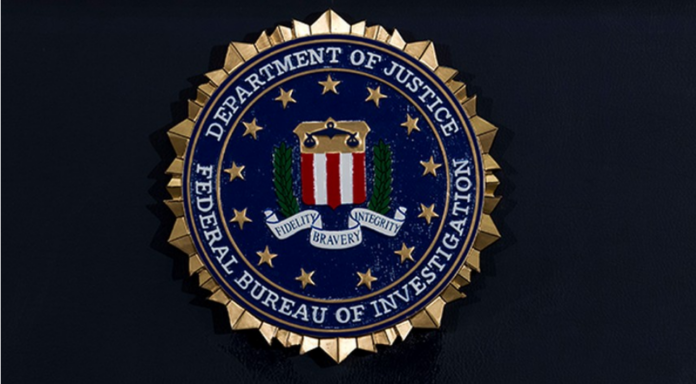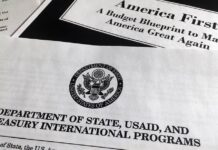The FBI has some fantastic news for you.
The agency has reportedly cut back on conducting surveillance on Americans without warrants. This means they have supposedly been violating our rights fewer times than they were a couple of years ago.
Isn’t that wonderful?
The number of searches has dropped precipitously:
The number of warrantless searches of Americans’ telephone calls, emails and text messages conducted by the Federal Bureau of Investigation plummeted last year, dropping from millions of searches to about 120,000, according to a U.S. intelligence report.
According to a report from the U.S. Office of the Director of National Intelligence, the number of warrantless searches of Americans’ communications conducted by the FBI dropped significantly in 2022. The searches decreased from millions to about 120,000, representing a decline of over 90 percent compared to the previous year.
This drop is attributed to improved compliance with search restrictions following internal reforms and variations in national security investigations, according to the report. Factors such as changes in communication practices of suspected foreign spies and technological advancements also contributed to the decline.
The report’s findings have caught the attention of Congress, which is considering whether to amend the law that authorizes the surveillance program before it expires at the end of the year. The program in question is Section 702 of the Foreign Intelligence Surveillance Act (FISA), which allows the National Security Agency (NSA) to collect communications believed to belong to foreigners living abroad, inadvertently sweeping up Americans’ data in the process.
Supporters of the program argue that it is a valuable intelligence tool for national security, aiding in counterterrorism efforts and providing insights into the strategic ambitions of adversaries like Russia and China. However, privacy advocates argue that the program lacks transparency and raises concerns about warrantless access to Americans’ data.
Judge Andrew Napolitano penned an op-ed savaging the Bureau and other federal agencies for continuing to infringe on our rights. He wrote:
This revelation is supposed to give members of Congress comfort that the folks we have hired to preserve, protect and defend the Constitution are in fact doing so. In reality, the FBI and their cousins at the National Security Agency continue to assault and violate a core freedom protected by the Constitution — the right to be left alone.
Napolitano also criticized Section 702, calling it “unconstitutional on its face” and arguing that it “directly contradicts the core language of the Fourth Amendment.”
“On its face, it permits the feds to conduct warrantless surveillance on foreign persons who are either physically or digitally present in the United States and all with whom they communicate — American or foreign — who are located here,” he wrote.
While some might view the decrease in warrantless searches as a step in the right direction, privacy advocates argue that the figure is still too high and that any warrantless surveillance is unacceptable. Elizabeth Goitein, from the Brennan Center for Justice, emphasized the need to protect privacy and called for changes to the law.
“It still adds up to more than 300 warrantless searches for Americans’ phone calls, text messages, and emails every day,” she said. “One warrantless search is too many; 119,383 is appalling.”
The report revealed that the FBI had accessed the content of U.S. data in some instances without obtaining a warrant, potentially violating a requirement imposed by Congress in 2018. FBI officials defended these actions, citing the need for efficiency in pursuing investigative leads and aiding victims of cyberattacks.
In addition to the drop in searches conducted by the FBI, other agencies such as the NSA, the Central Intelligence Agency (CIA), and the National Counterterrorism Center also reported declines in their searches of U.S. data. However, the FBI’s domestic-security mission contributes to its significantly higher number of searches compared to these agencies.
The Biden administration has launched an effort to convince lawmakers to renew the expiring surveillance authority without substantial changes. Some members of Congress are advocating for reforms to protect privacy and establish clearer guidelines for searches. Unfortunately, the geriatric authoritarian in the White House doesn’t seem to care about stopping the FBI from violating our rights.
The revelation that the FBI had been conducting millions of warrantless surveillance searches on Americans’ communications is profoundly troubling and raises serious concerns about the agency’s respect for privacy and civil liberties. The Fourth Amendment protects individuals against unreasonable searches and requires the government to obtain a warrant based on probable cause. The Bureau’s conduct was a flagrant violation of this right.
While the drop in the number of warrantless searches to 120,000 may seem like a significant improvement, it is essential to recognize that any number of warrantless searches is unacceptable. Each instance represents a violation of an individual’s privacy and a breach of their natural rights. Moreover, celebrating the reduction in searches could inadvertently normalize and justify a level of surveillance that should never have occurred in the first place.
The decline in searches does not guarantee that the FBI will not revert to conducting the same level of mass surveillance without warrants in the future. The fact that the agency engaged in such practices previously, only to reduce them under public scrutiny or internal reforms, raises concerns about the possibility that the Bureau will return to its old tricks when the heat dies down.
This revelation is yet another reason why folks like myself advocate for the abolition of the FBI. The agency has shown time and time again that it is beyond reform. The corruption has become far too entrenched for any hope of redemption. Unless the Bureau is dissolved, the federal government will continue having an apparatus it can use to infringe on our liberties, and it will not hesitate to do so.





I have been advocating for shutting down the FBI for many years.